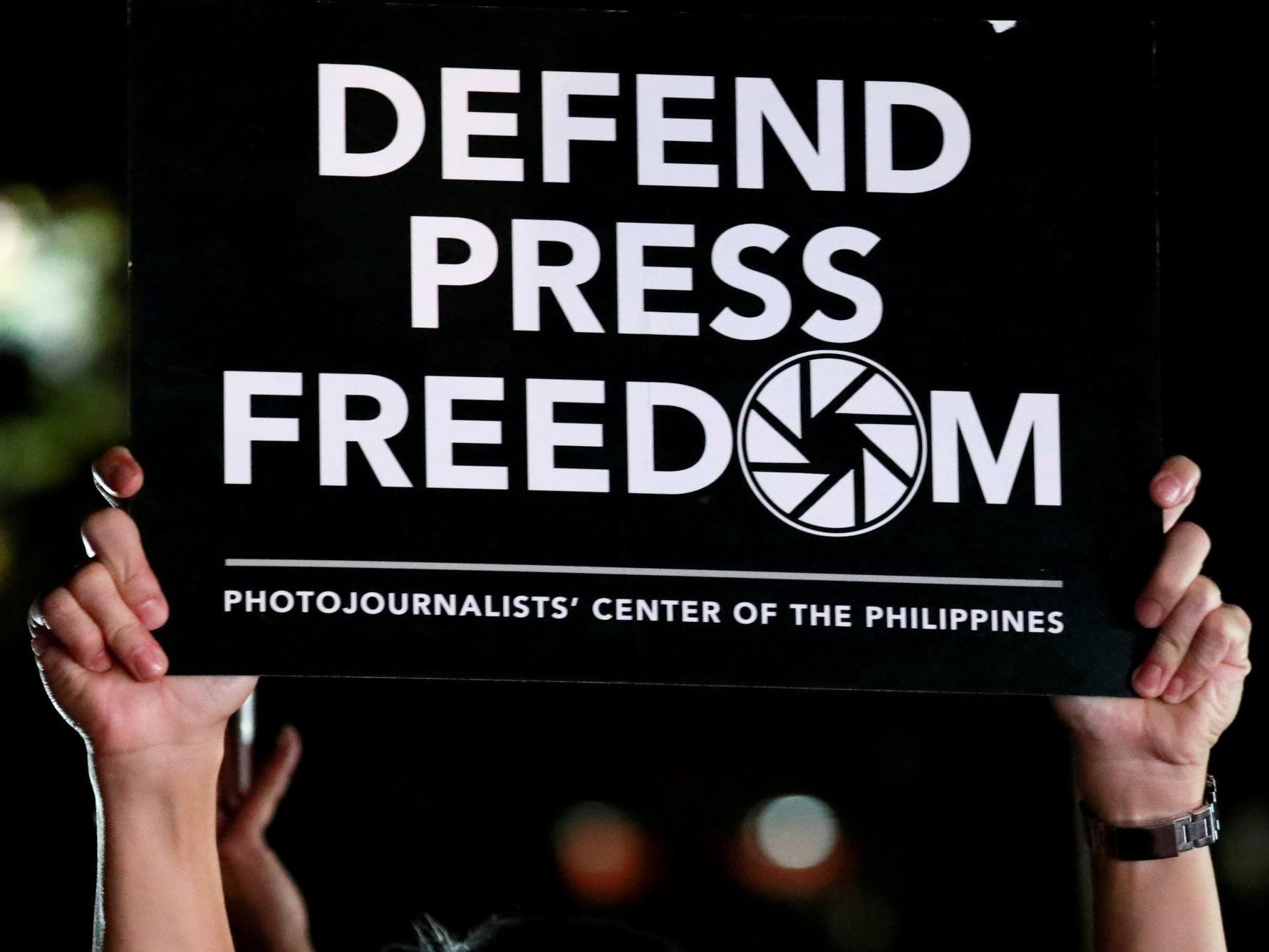
On World Press Freedom Day today, we should all celebrate the very best of UK journalism – from The Telegraph’s exposé of “The Lockdown Files”, to the Newcastle Chronicle’s powerful campaign “Stop Knives Taking Lives”, seeking to tackle violent knife crime in its community.
Journalists work day in, day out to bring us vital information, powerful scoops, and hard-hitting investigations – reporting from war zones in Sudan and far too many other places around the world; and, of course, throughout the Covid-19 pandemic. Having trusted journalism is vital to helping us make sense of what is happening in our world.
Yet, the future of journalism, and press freedom which underpins it, is threatened on a number of fronts.
Today, Reporters Without Borders have published their annual World Press Freedom Index, showing yet again a distressing picture of the threats and abuses journalists are subject to all over the world.
Since January, five journalists have been killed and over 500 are in prison globally.
We cannot allow journalists to be seized with impunity. The recent detention of reporter Evan Gershkovich on charges of espionage is another serious example of the threat to press freedom that we face. The Wall Street Journal has rightly chastised this attack on a free press, and we join calls on the Russian government to release Evan immediately.
When journalists are targeted, we must remember that it is our democracy that pays the price.
This time the Index has also revealed that the UK has worryingly dropped two places down to 26th place.
And it is not hard to reason why.
For too long Section 40 of the Crime and Courts Act has hung over the news media industry like a sword of Damocles. It is a clause which would force news brands who have not signed up to state-backed regulation – to pay for all legal costs in libel and privacy cases even if they win.
This is not legislation designed to support a democratic society but to punish news publishers for their hard-fought, dedicated journalism that often shines a spotlight on corruption and wrongdoing.
Thankfully, the Draft Media Bill, published last month, seeks to repeal this pernicious clause and for the sake of press freedom in this country, it is vital it succeeds. Each day it remains on the statute book is another opportunity to censor free speech and investigative journalism. We cannot let that happen.
Another ongoing scourge to a free press are SLAPP (strategic litigation against public participation) cases.
Litigation bent on muzzling journalists, used by wealthy individuals and corporations intending to intimidate, silence, and even harass, their critics.
SLAPP cases become a tool for free rein to curb public interest journalism and legitimate scrutiny.
These damaging practices are an unforgivable misuse of our limited public resources of the courts and a serious abuse of our legal system. “The recent case, reported in The Times last week, of the charity Marie Curie allegedly threatening a volunteer with court action if they spoke to the press about its handling of bullying allegations, is a stark reminder that these abuses will not go away without government intervention.
The NMA has repeatedly called for an end to such practices to protect press freedom in the UK. Regrettably, a timeline for introducing anti-SLAPP protections has yet to be revealed. We urge the government to publish this without delay.
And last November we saw the extremely troubling episode with journalists being arrested, simply for doing their job, reporting on Just Stop Oil protests on the M25. Such action should never have been taken.
These measures will help to protect UK journalism for years to come. Without a free press, we would have no voice in our society.
Without it, we would not have known about the Cambridge Analytica scandal, revealed by The Observer in 2018, or the powerful exclusive from the Manchester Evening News last year, revealing the appalling living conditions found at the Rochdale Freehold Estate.
It is why measures such as safeguarding the news publisher exemption clause in the Online Safety Bill and empowering the Digital Markets Unit – which seeks to encourage innovation and level the playing field between the tech giants and news publishers – are so important. These measures are fundamental to the survival of journalism and will allow journalists to continue to probe, investigate and report on matters of public interest. Without a financially sustainable media, there is no press freedom.
Over 50 years ago, George Orwell wrote: “Freedom of the press, if it means anything at all, means the freedom to criticise and oppose.”
On the 30th anniversary of World Press Freedom Day today, this statement means more to our democracy than ever. Let us not forget the power of journalism and what we must do to protect it.
Email pged@pressgazette.co.uk to point out mistakes, provide story tips or send in a letter for publication on our "Letters Page" blog
